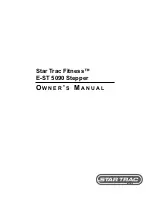
Page 6
RULES FOR SAFE OPERATION
EXTENSION CORDS
Grounded tools require a three wire extension cord. Double insulated tools can use either a two or three
wire extension cord. As the distance from the supply outlet increases, you must use a heavier gauge
extension cord. Using extension cords with inadequately sized wire causes a serious drop in voltage,
resulting in loss of power and possible tool damage.
The smaller the gauge number of the wire, the greater the capacity of the cord. For example, a 14 gauge
cord can carry a higher current than a 16 gauge cord. When using more than one extension cord to make
up the total length, be sure each cord contains at least the minimum wire size required. If you are using
one extension cord for more than one tool, add the nameplate amperes and use the sum to determine the
required minimum wire size.
GUIDELINES FOR USING EXTENSION CORDS
• If you are using an extension cord outdoors, make sure it is marked with the suffix “W-A” (“W” in
Canada) to indicate that it is acceptable for outdoor use.
• Be sure your extension cord is properly wired and in good electrical condition. Always replace a
damaged extension cord or have it repaired by a qualified person before using it.
• Protect your extension cords from sharp objects, excessive heat and damp or wet areas.
• Keep away from water. Do not use if wet.
• Inspect thoroughly before each use. DO NOT USE IF DAMAGED.
• Make sure equipment is OFF before connecting cord outlet.
• FULLY INSERT plug into outlet.
• Do not remove, bend or modify any metal prongs or pins of cord.
• Do not use excessive force to make connections.
• Do not connect a three prong plug to a two-hole cord.
• Avoid overheating. Uncoil cord and do not cover it with any material.
• Do not walk on cord.
• Do not drive, drag or place objects over cord.
READ AND SAVE ALL INSTRUCTIONS FOR FUTURE REFERENCE.
WARNING:
Electrical cords can be hazardous. Misuse can result in fire or death by electrical
shock. Read carefully and follow all directions.







































